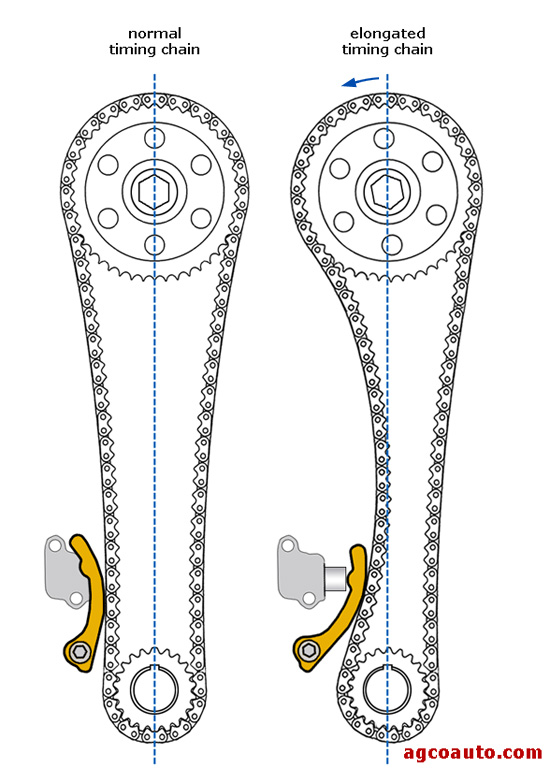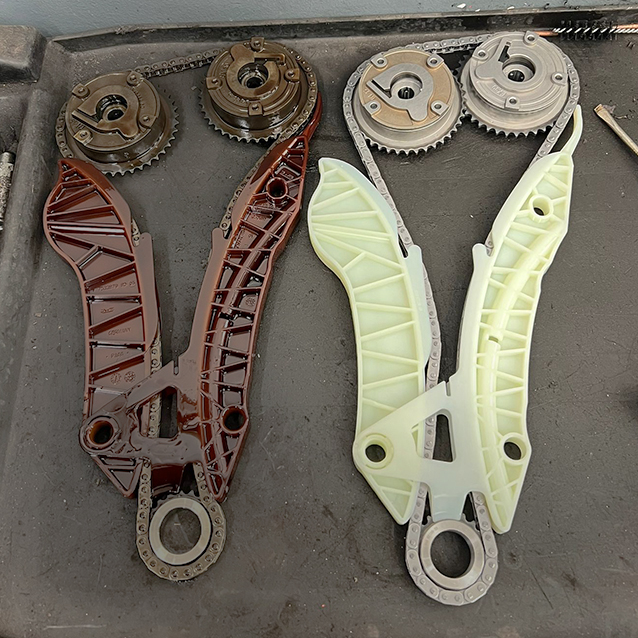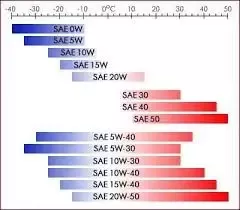When it comes to the smooth operation of your vehicle’s engine, the timing chain plays a crucial role. It ensures that the engine’s valves open and close at the right times during the intake and exhaust strokes. However, like any other component, the timing chain can develop issues over time, leading to a range of symptoms that indicate potential problems. Understanding these symptoms can help you take prompt action to address any timing chain issues before they cause more significant damage to your vehicle.
Unusual Engine Noises
One of the most common symptoms of a timing chain problem is unusual sounds emanating from the engine. These sounds can include rattling, clattering, or ticking noises, particularly when the engine is idling or during acceleration. A loose or worn timing chain can create these noises, signaling that it may be in need of attention. Ignoring these sounds can lead to more severe issues, so it’s essential to address them promptly.
Decreased Engine Performance
A worn or damaged timing chain can also lead to a decline in the overall performance of your vehicle’s engine. You may notice a decrease in power, reduced acceleration, or a rough idle. Additionally, the engine may sputter or hesitate during acceleration or exhibit a lack of responsiveness. These symptoms can indicate that the timing chain is not functioning as it should, affecting the engine’s ability to operate at its optimal level.
Engine Misfires
Timing chain issues can also result in engine misfires, where the engine fails to ignite the air-fuel mixture properly in one or more cylinders. This can lead to rough running, a noticeable lack of power, and potential damage to the catalytic converter. Engine misfires can be a clear indicator of timing chain problems and should be addressed promptly to prevent further damage to the engine.

Credit: www.agcoauto.com
Check Engine Light
Another common indication of timing chain issues is the illumination of the check engine light on the vehicle’s dashboard. When the engine’s computer detects irregularities in the timing chain’s operation, it can trigger the check engine light to alert the driver to a potential problem. If the check engine light comes on, it’s essential to have the vehicle inspected by a qualified mechanic to diagnose the issue and prevent any further damage.
Metal Shavings in Oil
During routine maintenance, such as an oil change, it’s crucial to inspect the oil for any signs of metal shavings. Metal shavings in the oil can indicate excessive wear or damage to the timing chain, as well as other internal engine components. If metal shavings are present, it’s a clear sign that the timing chain may be experiencing issues and that further inspection and potential replacement may be necessary.

Credit: reliancebicester.co.uk
Frequently Asked Questions
How Can You Tell If Your Timing Chain Is Bad?
Some symptoms of a bad timing chain include a check engine light, unusual sounds while the car is running, and a fast crank with no start. If the timing chain breaks or jumps while driving, the engine may fail or not start at all.
Additionally, a rattling noise while idling can indicate a loose timing chain.
What Happens When Your Timing Chain Starts To Go Out?
A timing chain that starts to go out can cause the engine to fail or not start at all. If the chain is already broken, the engine won’t have enough compression to start. If it breaks or jumps while driving, it can damage the pistons from contact with the valves, potentially ruining the engine.
What Happens If You Drive With A Bad Timing Chain?
Driving with a bad timing chain can lead to serious engine damage. If the chain is already broken or damaged, the engine may not start or fail while driving. The pistons can be damaged from contact with the valves, and the valves themselves may bend, potentially ruining the engine.
It’s important to address any timing chain issues promptly to avoid further damage.
What Does A Failing Timing Chain Sound Like?
A failing timing chain can produce a rattling sound when the car is idling. It may be more noticeable as the engine heats up and usually disappears after a while.
Read More: How Do You Diagnose a Bad Timing Chain?
Conclusion
Recognizing the symptoms of a timing chain problem is essential for maintaining the overall health and performance of your vehicle’s engine. By paying attention to unusual engine noises, decreased performance, engine misfires, the check engine light, and metal shavings in the oil, you can identify potential timing chain issues early and take the necessary steps to address them. Prompt action can help prevent more severe damage to the engine and ensure that your vehicle continues to operate smoothly and reliably.


